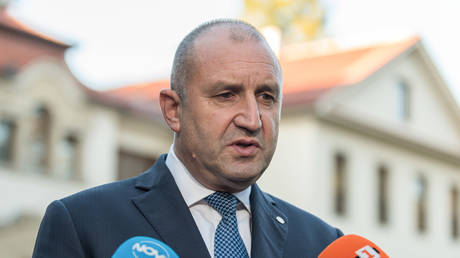ARTICLE AD BOX
Bulgaria will proceed with sending Kiev 100 Cold War-era armored vehicles for which it has found no other use
Bulgarian MPs have overridden President Roumen Radev’s veto on the delivery of a large batch of outdated armored personnel carriers (APCs) to Ukraine to help in its fight against Russia.
In July, the NATO country’s National Assembly voted to provide Ukraine with 100 APCs, along with spare parts and ammunition. The vehicles were purchased by Bulgaria in the 1980s, and the government now says it has no use for them. The deal to provide them to Kiev was ratified in late November.
Earlier this week, Bulgarian President Roumen Radev, a critic of military assistance to Ukraine, vetoed the initiative. He argued that Bulgaria could give the vehicles to the police or firefighters, adding that MPs had failed to adequately consider alternative uses for the equipment.
Nevertheless, on Friday, Radev’s veto was bypassed, with 162 lawmakers in favor and 55 against. This week, MPs also approved in the first reading the transfer of anti-aircraft missiles to Kiev. The draft resolution applies to rockets that are either malfunctioning, or redundant. According to AP, Ukraine has the necessary facilities to either repair the missiles, or use them as spare parts.
Read more NATO state’s president vetoes arms shipment to Ukraine
NATO state’s president vetoes arms shipment to Ukraine
Prior to the decision on the APCs, chief of the defense commission Hristo Gadjev, who oversaw the veto review, said that the issue had been discussed at length, adding that Sofia had even tried unsuccessfully to sell the vehicles. He also noted that Bulgaria had much more modern equipment.
Meanwhile, Defense Minister Todor Tagarev admitted that Ukrainian forces would not be able to use the APCs to attack Russian positions because they would get bogged down in rough terrain, but suggested that they could serve under other conditions.
Radev has consistently opposed sending arms to Ukraine, insisting that it would draw Bulgaria into the struggle. In July, he voiced this stance during face-to-face talks with Ukrainian President Vladimir Zelensky, telling him that he had an obligation to maintain the high readiness of the country’s military, and that the conflict “has no military solution, and more and more weapons will not solve it.”
Russia has repeatedly warned the West against sending arms to Ukraine, arguing that it will only prolong the fighting without changing the outcome. It has also said that providing military assistance makes NATO a direct participant in hostilities.
.png)
 1 year ago
12
1 year ago
12








 English (US)
English (US)